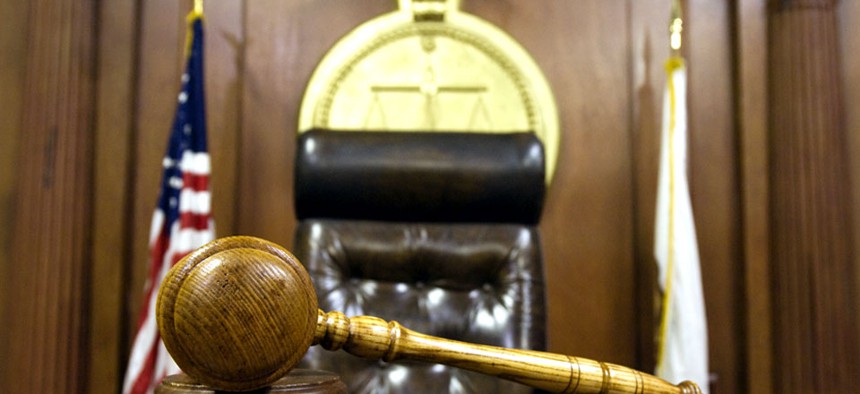
bikeriderlondon/Shutterstock.com
Analysis: Sequestration Is Holding Up Our Legal System
Federal judges say a constitutional crisis may be on the horizon.
It has been 134 days now -- roughly one-third of a year -- since the federal budget "sequester" formally took hold. And while members of Congress rushed a few months ago to ease the sequester's impact upon air traffic control -- that is, rushed to make sure their planes would take off on time as they got out of Washington for their long weekends -- there has been no such rush to protect the nation's legal system from the grim impact of the budget cuts. Our federal trials can be delayed at great cost to litigants, our nation's third branch may slide into third-world practices, but God forbid our planes should be late.
It would be one thing if the federal judiciary's budget were bloated. But clearly it is not. "For every one thousand dollars ($1000) of federal spending, the Judicial Branch uses one dollar and eighty-nine cents ($1.89)," U.S. District Judge Fred Biery wrote last week in an open letter to members of the Texas delegation to Congress. "Of that amount," the judge added, "the Western District of Texas uses three pennies." The sequester, in West Texas and everywhere else in the United States, is about the willingness of Congress and the White House to hinder justice by squeezing pennies out of the nation's already-underfunded courts.
Few outside of legal circles want to talk about the impact of the cuts upon the administration of justice. It rarely makes news -- and certainly not television news since there are few images to broadcast. But the sequester's impact upon the federal courts is bad, and getting worse, and will reach constitutional crisis next year around this time if the budget cuts reach into the next fiscal year. In the past few days, I've rounded up a sampling of views from some federal trial judges on what this means for federal litigants today and what it portends for future litigants if Congress continues to fail or refuse to adequately fund the federal court system. Read this cogent "fact sheet" from the Federal Defenders Office if you want details.
Included below are the comments of several sitting federal trial judges who expressed concern to me not just about the cost-cutting that impacts their courtrooms now but also about the profound separation-of-powers principles implicated by the lingering political deadlock in Washington. The sequester, in other words, represents an assault by the legislative and executive branches upon core judicial functions. And if it lasts much longer, if the next fiscal budget is impacted, the sequester will strip Americans of their right to both serve upon and to be served by juries.
The Administrative Office of the United States already has indicated that it may be forced to eliminate civil jury trials in the month of September -- a whole month without federal civil trials anywhere in America! "If sufficient funding is not provided to the courts," 6th U.S. Circuit Court of Appeals Judge Julia Gibbons bluntly told lawmakers in March, "we cannot provide the people of the United States the type of justice system that has been a hallmark of our liberty throughout our nation's history." The sad truth is, however; few of the nation's political leaders, including the former constitutional scholar who now inhabits the White House, seem to care.
Read the full article at TheAtlantic.com.
(Image via bikeriderlondon/Shutterstock.com)
NEXT STORY: Play of the Day: The Congressional Body Issue






